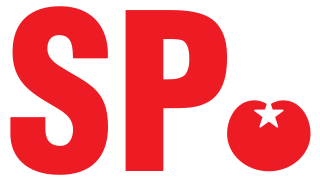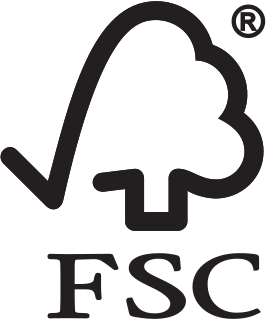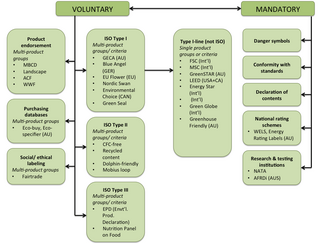Related Research Articles

The United Nations Economic Commission for Europe is one of the five regional commissions under the jurisdiction of the United Nations Economic and Social Council. It was established in order to promote economic cooperation and integrations among its member states.
Traceability is the capability to trace something. In some cases, it is interpreted as the ability to verify the history, location, or application of an item by means of documented recorded identification.

The pulp and paper industry comprises companies that use wood as raw material and produce pulp, paper, paperboard and other cellulose-based products.

The Socialist Party is a democratic socialist political party in the Netherlands. Founded in 1971 as the Communist Party of the Netherlands/Marxist–Leninist, the party has since moderated itself from Marxism–Leninism (Maoism) towards democratic socialism and social democracy. The SP has also been described as left-wing populist and soft Eurosceptic, and is an advocate of Dutch republicanism.

Illegal logging is the harvest, transportation, purchase or sale of timber in violation of laws. The harvesting procedure itself may be illegal, including using corrupt means to gain access to forests; extraction without permission, or from a protected area; the cutting down of protected species; or the extraction of timber in excess of agreed limits. Illegal logging is a driving force for a number of environmental issues such as deforestation, soil erosion and biodiversity loss which can drive larger scale environmental crisis such as climate change and other forms of environmental degradation.

The Single European Act (SEA) was the first major revision of the 1957 Treaty of Rome. The Act set the European Community an objective of establishing a single market by 31 December 1992, and a forerunner of the European Union's Common Foreign and Security Policy (CFSP) it helped codify European Political Co-operation. The amending treaty was signed at Luxembourg City on 17 February 1986 and at The Hague on 28 February 1986. It came into effect on 1 July 1987, under the Delors Commission.

The Forest Stewardship Council (FSC) is an international non-profit, multistakeholder organization established in 1993 that promotes responsible management of the world's forests. It is an example of a market-based certification program used as a transnational environmental policy.

Ecolabels and Green Stickers are labeling systems for food and consumer products. The use of ecolabels is voluntary, whereas green stickers are mandated by law; for example, in North America major appliances and automobiles use Energy Star. They are a form of sustainability measurement directed at consumers, intended to make it easy to take environmental concerns into account when shopping. Some labels quantify pollution or energy consumption by way of index scores or units of measurement, while others assert compliance with a set of practices or minimum requirements for sustainability or reduction of harm to the environment. Many ecolabels are focused on minimising the negative ecological impacts of primary production or resource extraction in a given sector or commodity through a set of good practices that are captured in a sustainability standard. Through a verification process, usually referred to as "certification", a farm, forest, fishery, or mine can show that it complies with a standard and earn the right to sell its products as certified through the supply chain, often resulting in a consumer-facing ecolabel.

Forestry laws govern activities in designated forest lands, most commonly with respect to forest management and timber harvesting. Forestry laws generally adopt management policies for public forest resources, such as multiple use and sustained yield. Forest management is split between private and public management, with public forests being sovereign property of the State. Forestry laws are now considered an international affair.
The Programme for the Endorsement of Forest Certification (PEFC) is an international, non-profit, non-governmental organization which promotes sustainable forest management through independent third party certification. It is considered the certification system of choice for small forest owners.

Sustainable forest management (SFM) is the management of forests according to the principles of sustainable development. Sustainable forest management has to keep the balance between three main pillars: ecological, economic and socio-cultural. Sustainable forestry can seem contradicting to some individuals as the act of logging trees is not sustainable. However, the goal of sustainable forestry is to allow for a balance to be found between ethical forestry and maintaining biodiversity through the means of maintaining natural patterns of disturbance and regeneration. Successfully achieving sustainable forest management will provide integrated benefits to all, ranging from safeguarding local livelihoods to protecting biodiversity and ecosystems provided by forests, reducing rural poverty and mitigating some of the effects of climate change. Forest conservation is essential to stop climate change.
The Forest Movement Europe (FME) is a grouping of more than 45 NGOs from 12 European countries working on forest issues. The movement has been in existence, although under different names, for more than 15 years. Its purpose is to share information, to develop joint strategies and a wider European perspective on forest issues. The FME also supports NGOs and Indigenous Peoples Organisations in the South in their activities to protect forests.
Fern is a Dutch foundation created in 1995. It is an international Non-Governmental Organization (NGO) set up to keep track of the European Union's involvement in forests and coordinate NGO activities at the European level. Fern works to protect forests and the rights of people who depend on them.

The Schengen Area is an area comprising 26 European countries that have officially abolished all passport and all other types of border control at their mutual borders. The area mostly functions as a single jurisdiction for international travel purposes, with a common visa policy. The area is named after the 1985 Schengen Agreement signed in Schengen, Luxembourg.
Iola Leal Riesco is a Spanish environmental and social activist working for European Forest Institute and Well Grounded. Her educational background is in the field of forest and human ecology. Since 2003 she has been working to help solve the challenges of integrating environmental issues into EC Aid policies and improve governance in forests globally. Her work continues to center upon EU policies as well as following closely the EU action plan for Forest Law Enforcement, Governance and Trade. In 2010, she set up with Cath Long the organisation Well Grounded, which provides services and support to African civil society organisations working with communities to help them assert their rights and to improve forest governance.

Diplomatic relations between European countries and Indonesia date back to 1949. Initially, European Union (EU)–Indonesia relations were facilitated through the EU–Association of Southeast Asian Nations (ASEAN) cooperation. Bilateral cooperation was continuously expanded and eventually the EU Delegation to Indonesia was opened in 1988. Economic and political dialogue between Indonesia and the EU takes the form of regular Senior Officials Meetings. In 2000 relations were further reinforced with the release of the European Commission's communication "Developing Closer Relations between Indonesia and the EU". In November 2013, the EU's high representative for foreign and security policy Catherine Ashton made her first-ever official visit to Indonesia which was hailed as a long-awaited breakthrough in the EU's relationship with Indonesia.
Environmental certification is a form of environmental regulation and development where a company can voluntarily choose to comply with predefined processes or objectives set forth by the certification service. Most certification services have a logo which can be applied to products certified under their standards. This is seen as a form of corporate social responsibility allowing companies to address their obligation to minimise the harmful impacts to the environment by voluntarily following a set of externally set and measured objectives.
The European Union Forest Law Enforcement, Governance and Trade Action Plan is a European Union initiative to address illegal logging and the social, economic and environmental harm it causes. The EU adopted the Action Plan in 2003. The plan includes activities in the EU and in tropical countries that export timber and timber products to the EU. These measures include a regulation that prohibits EU businesses from importing or trading illegal timber, and bilateral trade agreements with timber-exporting countries. Much of the FLEGT Action Plan focuses on promoting trade in legal timber products and creating disincentives for trade in illegal products. However, the Action Plan's measures go further by addressing aspects of poor governance that enable illegal logging to persist.
Martin Hojsík is a Slovak activist, an environmental expert and a politician elected as a Member of the European Parliament in 2019. In addition to his committee assignments, Hojsík is a member of the European Parliament Intergroup on the Welfare and Conservation of Animals and a member of the political group Renew Europe. He is also a vice chairman of the non-parliamentary political movement Progressive Slovakia and their expert on environmental issues and sustainability.